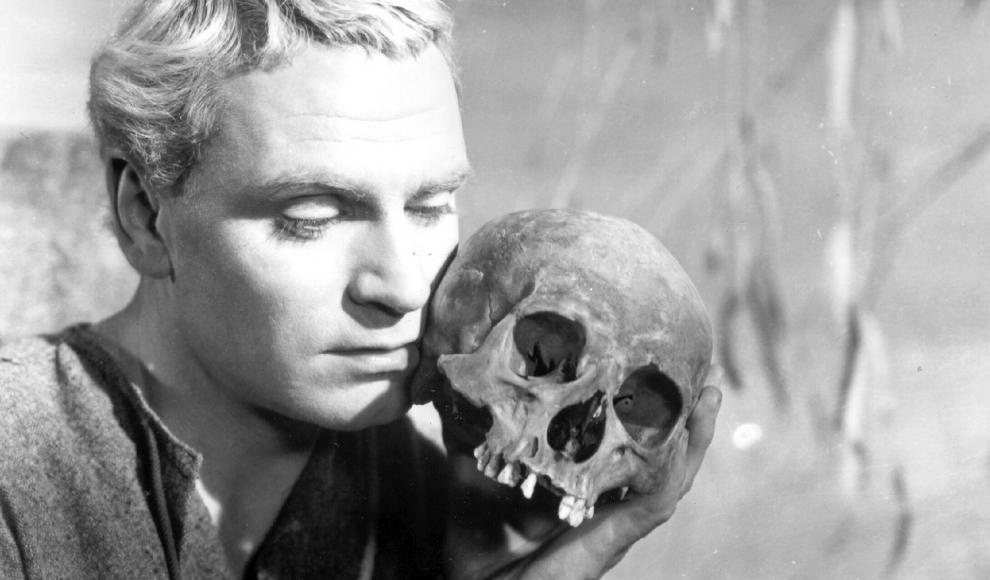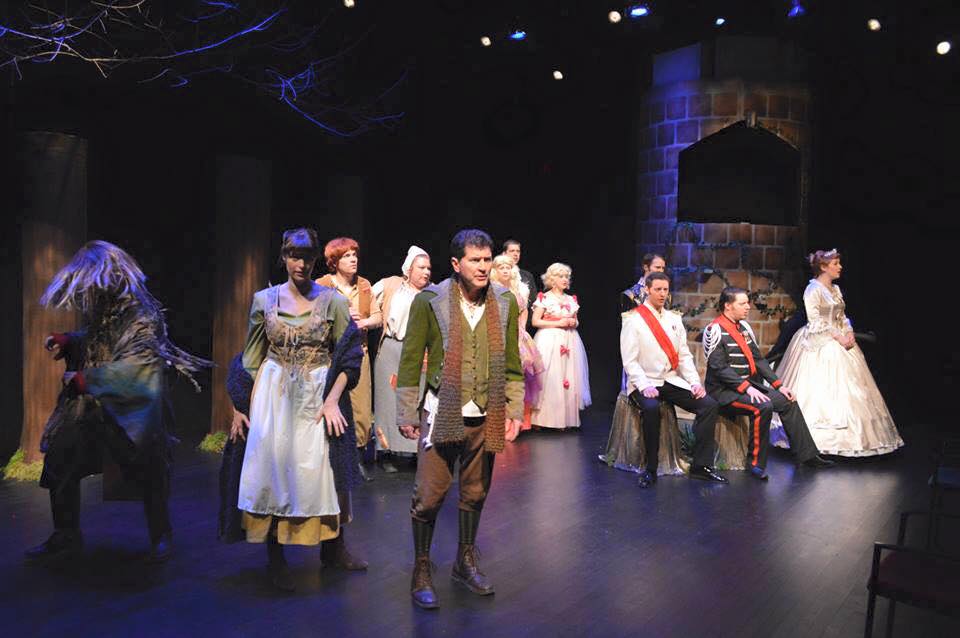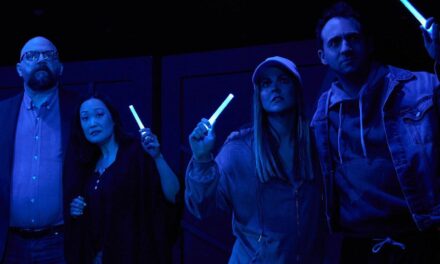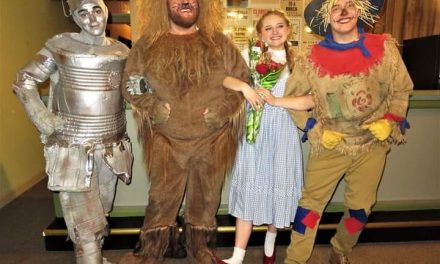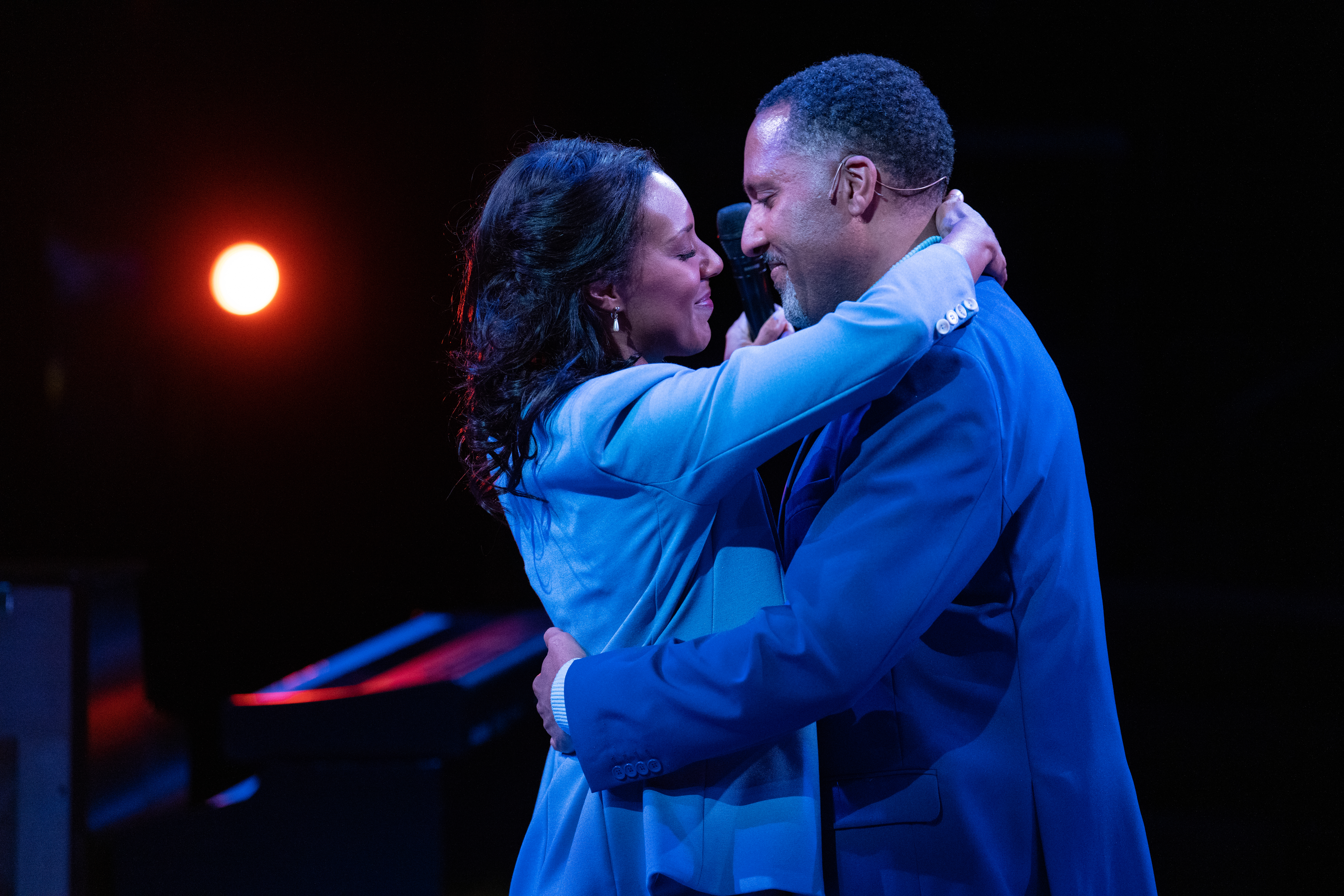By Jason Cooper
Entire contents are copyright © 2020 by Jason Cooper. All rights reserved.
5. All Hail Thespis
When I was 22 and freshly out of the closet, I knew it was time to go to college. Having spent all of my time since high school in front of a microphone, I knew I was going to miss it. Mostly, I had been performing for a living for the last four years – I can’t even tally how many weddings I sang – and I was worried about what I was going to do now that I no longer had that outlet. However, it didn’t take long before I was reacquainted with my first love, theatre.
A Humanities class I was taking required us to see a production off-campus. It just so happened that at the time Actor’s Theatre of Louisville was doing Tony Kushner’s iconic Angels in America: Millennium Approaches. I went to see it alone, knowing very little about the play. I knew it had something to do with AIDS, and I had heard the title before because I’d been watching the Tony Awards since I was a kid (again, I’d like to point out that it took me until I was 22 to admit I was gay.) What I saw on that stage that night in 1998 blew my mind. The feeling I had inside me was reminiscent of the day my sister introduced me to all of those cast albums. I had a new calling; music was out; I was going to be a serious stage actor.
I wanted to audition for a play as soon as possible, so I scurried on over to the theatre department to see what was coming up. The next audition coming up was for The Seagull by Anton Chekov. I didn’t know what any of those words meant, but I didn’t care, I signed up.
I often wonder where I would be right now if I hadn’t been cast in that production of The Seagull because that moment set the course for the next two decades of my life. But I was cast; I had approximately six lines in a roughly seventeen-hour production of Chekov’s The Seagull. Word to the wise, if you love someone, don’t make them watch you in a college production of Chekov.
Anyone who’s ever spent anytime near a University’s Theatre department knows that basically, it’s a freak show. For me, at long last, I had found my true tribe. These were my people. I knew immediately I was home. Of course, the theatre does seem to draw more than its fair share of crazies, but really who else would choose to do this with their life? The phase of my life was all about theatre, just as the previous had been all about singing in bands. I had an absolute blast in college, and I made some of the best friends I’ve ever had. I auditioned for the BFA program and was accepted. It was never my intention to major in theatre, however, a professor I had told me one day that it did not matter what you majored in as long as you got a degree. I took the same stance myself, just as I knew, no matter how many people doubted it that I would eventually go to college; I knew that when I did, I was going to concentrate on something that made me happy, no matter how impractical it seemed.
Following my stellar turn as Yaakov, the scenery moving manservant in The Seagull, I did shows at college back to back for the next four years. Highlights include Shakespeare (Measure For Measure, The Winter’s Tale), comic who-done-its (The Musical Comedy Murders of 1940), French classicism (L’illusion Comique), classic Americana (Our Town), modern contemporary (Stop Kiss), and traditional Musical theatre (You’re a Good Man Charlie Brown), playing my giant-skulled kindred spirit for a second time.
How does one describe a college theatre department to someone on the outside? Well for starters we take ourselves very seriously. The stakes are always very high. Simple decisions like burgers or pizza require us to touch sound and conjure up some sense-memory. Smoking cigarettes is an absolute must; at least it was in the 90s. I was adamantly anti-smoking until my first college production then it took me twelve damn years to start the habit.
If you’re doing it right, your theatre department friends will become some of the best you’ve ever had. The parties can be legendary; food fights, body shots, truth or dare, pretty much anything that can come back to bite you in the ass happens at these parties, and someone is always ready with their camera to document it. One married couple even broke up right in the middle of one of our parties, with a captive audience and everything. Most of us in my Theatre Department were really tight and supportive of each other. Conversely, there are also people ready and waiting to throw you under the first bus to pass by. I am not saying, “don’t trust theatre people,” that would be no fun. I am saying beware. Beware of compliments like “that was a really interesting choice,” or “I would never have thought to play it that way,” or the dreaded “that was brave of you.” You must learn to recognize insults wearing compliment disguises.
Actors are a fragile bunch, easily threatened, overly critical, hypersensitive, and very insecure. So many of them can smile right in your face, all the while sharpening their knives. I admit I’ve plunged my dagger in the back of another to gain some edge when it came to casting. The age-old question is why would people like that – people like me – be drawn to a craft that exposes our every flaw and opens us up to criticism? I do not think there is a simple answer to that question, if there were, we probably wouldn’t need to do it. Despite the backbiting and occasional sabotage, my experiences in college theatre were joyous.
The best thing that can happen to an actor, particularly a young actor, is to get knocked down a peg or two. My early success in college theatre gave me a false sense of bravado. I played jump rope with the fine line between confidence and sheer jackassery. Seeing yourself as a big fish in a small pond is the most sure-fire way to make a big ol’ fool of yourself. I did that a few times. Once in college, I did not get cast in the title role in Pippin, and I was fired up. Musicals were a rarity in my theatre department and with my history as a singer, and after two rounds of auditions, everyone thought I was a shoo-in. When the cast list was posted, I was listed as “Ensemble”, and the title role was left blank. “THEY’RE BRINGING IN A RINGER!” I was furious, and of course, we thespians create so much drama amongst our selves that it only fed the flames. “I can’t believe you didn’t get it,” my friends whispered. “It’s all politics, you know.” It would never have occurred to any that perhaps we were not as good as we thought we were. I don’t know where I got the balls, but I confronted the director and asked her why I didn’t get the part. She promptly handed me my ass.
She turned to me and said, “well, to be frank, it was a hard choice, but ultimately, it is a very sexual role, and I just wouldn’t buy you as wanting to make love to this girl.”
For a split second my righteous indignation flared up then was quickly snuffed out. This director was precisely right, and I knew it
“Thank you,” I said, and I meant it, “I appreciate your honesty. That is something I want to work on.”
She told me, “I’ve been working with actors all of my life, and this is a very fixable problem, in fact, just being aware of it is half the battle.”
It was the best bit of advice I ever got. It was humbling, and I needed to be humbled, and it helped me become a better actor. I am still grateful to that director; even though the ringer they eventually brought in to play the role of Pippin had all of the machismo of Little Richard.
Community theatre. Just the words conjure up a lot of imagery. People like to laugh at community theatre or make it the butt of jokes, sometimes deservedly so, but community theatre provides a vital service, it gives us weirdoes an outlet. When I started to do some off-campus musicals, I started getting close to other gay men for the first time. When I was growing up, no other kids had the same interests as me. No one was interested in musicals or plays. I grew up thinking of myself as a singular oddity. Suddenly, people just like me, men who also dreamed of playing Jean Valjean when they were young, people who not only know who Patti LuPone is but also worship her properly, surrounded me. I never knew such a community existed; I was elated to find my tribe, finally. Also, I was also a little threatened.
There is strange invasiveness when you find out that other people share your passion. Before now, I considered my love of the arts and desire to perform to be unique and deeply personal. It never really occurred to me that I was not so uncommon after all. Nor is it unusual for people, particularly theatre people, to feel slightly territorial when we discover other people know what we know and want what we want. When you have always been the only one around with a particular skill or knowledge set, it is a tiny bit jarring to find out you are just one of many. Mostly though, it is a relief, “see, I’m not a freak after all. Other people know all the words to Cool Rider too.”
I don’t think I ever truly intended to pursue theatre as a profession. At least I never admitted it out loud. By the time I was wrapping up my college career, I had built up a full resume of school shows, off-campus shows, and summer stock. In my last two years, I even had an assistantship in the costume shop. I was pretty much regulated to sewing on buttons since I had the tendency to break every sewing machine I touched, but it was worth it, it paid half my tuition and allowed me to concentrate on school and theatre without having to juggle a full-time job as well. I am proud of the fact that I am a college graduate. Neither of my parents went to college, so for me; personally, I feel proud that I bucked the odds. I did not go to college right after high school, but I went, just like I knew I would and I did well and managed to graduate in four years, even if some consider my bachelor’s degree “a waste of time”. In the theatre building on campus, there was graffiti in the bathroom that said: “Theatre degrees are a bigger waste of $$$ than Philosophy degrees.” We used to take each other’s pictures next to it.
During my last year of college, I started thinking that maybe I would get a Masters Degree so I could teach theatre and drama. Deep down, I knew that the reality of an actor’s life was not for me. I couldn’t see myself in New York, waiting tables, auditioning, and getting rejection after rejection. Not getting cast is a punch in the gut every time, and it gets easier the longer you do it, but anyone who says “you can’t take it personally,” either has some type of magical powers or is a sociopath. As graduation approached, I was pretty sure I would go on to graduate school and become a theatre teacher, life, however, had other plans for me.
Tomorrow’s chapter: Touched Down in the Land of the Delta Blues
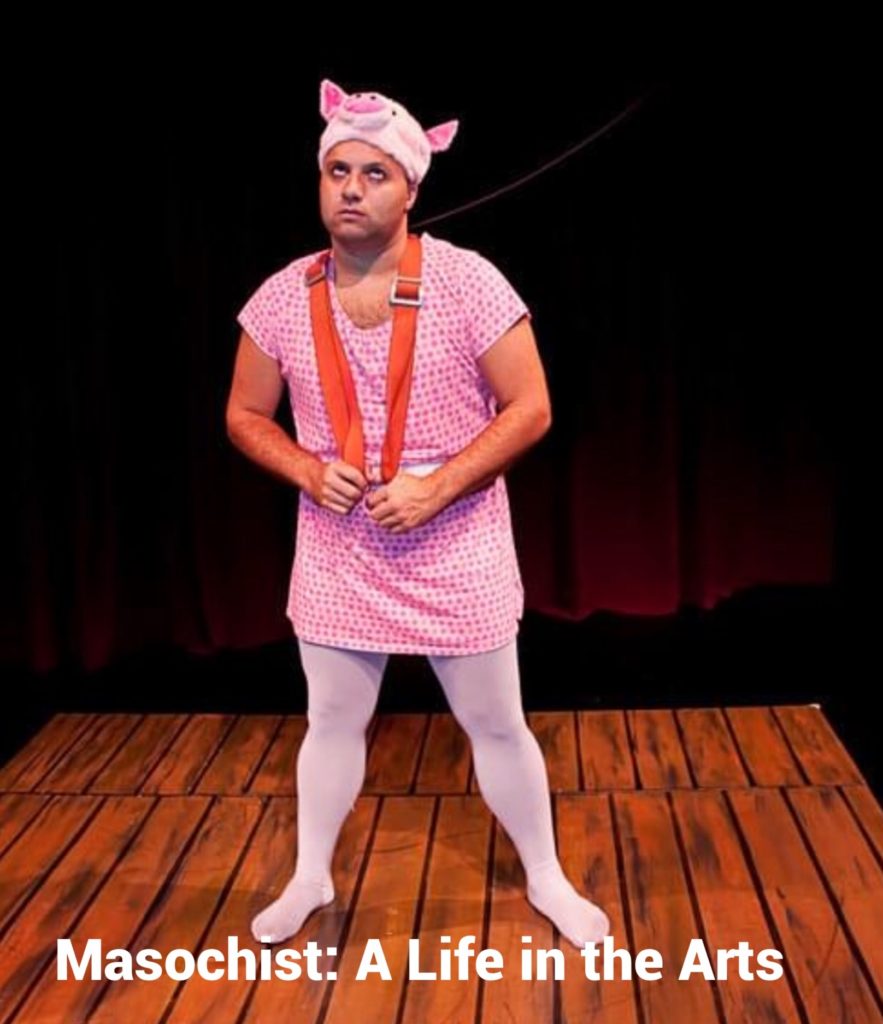
Jason Cooper has worked in professional, regional, and community theatre for over twenty years. After receiving his BFA in theatre performance he spent three seasons with the award-winning Playhouse on the Square in Memphis, TN. After working in theatres all over the country for a time, Jason settled in Chicago and worked with The Chicago Dramatists, Apple Tree Theatre, and Red Moon Theatre before returning home to Louisville to become a high school English teacher. Locally, Jason has worked extensively as an actor and director primarily for Pandora Productions, CenterStage, The Bard’s Town, Derby Dinner Playhouse, and Stage One.

